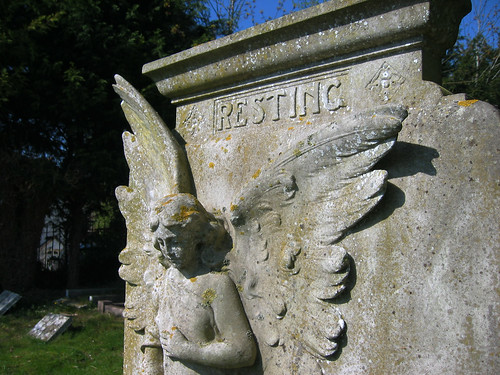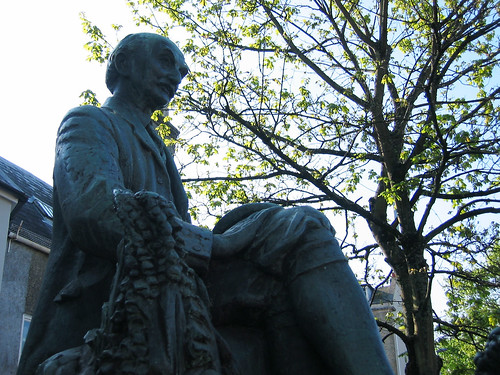He seems to me to be a trifle spoiled by success; he runs far too much after titled people, and, in general, the kind of society in which he is least qualified to shine. . . . Cannot let himself go in conversation, is uneasy and preoccupied.Similarly, American novelist Gertrude Atherton, in her Adventures of a Novelist (1932), described her first conversation with Hardy as a bit of a struggle:
I floundered about, broaching one subject and another, but he never even glanced at me, much less made any response to my embarrassed efforts. He appeared to have fallen into a reverie, quite oblivious to his surroundings. Then, heaven knows how . . . I lighted upon cable cars in San Francisco. Abstraction fled. His face lit up. He turned to me eagerly. He asked me a hundred questions.When she met Hardy again at a reception a fortnight later, he
drifted in, looking absent and weary as usual. But he no sooner caught sight of me than he was at my side, and plunged at once into the exciting subject of cable cars in San Francisco. I managed to divert him after a time, being heartily tired of the topic myself.Not that Atherton has any good words for Mrs. Hardy, either:
In his wake was an excessively plain, dowdy, high-stomached woman with her hair drawn back in a tight little knot, and a severe cast of countenance. "Mrs. Hardy," said [Atherton's friend] T. P. [O'Connor.] "Now you may understand the pessimistic nature of the poor devil's work." No doubt Hardy went out so constantly to be rid of her!Gissing, too, shares unpleasant interactions with Emma:
In a short private talk with Mrs Hardy, she showed me her discontented spirit. Talked fretfully of being obliged to see more society than she liked in London, and even said that it was hard to live with people of humble origin--meaning Thomas, of course. She then scolded her servants noisily for being late with lunch--oh, a painful woman!Such accounts, relatively common among those who knew the Hardys, make their long-running collaboration on the production of his novels seem more impressive. Though Emma's habit late in life of hinting that she should be regarded as a coauthor is clearly absurd, her diligent copying, research, and occasional suggestions were unquestionably of great help, and the fact that he never deigned to dedicate a novel to her is perhaps the simplest summation of his own inadvertent cruelty.
The mutual wounding of the Hardys, though never rising to the gothically awful level of the Tolstoys, does bring to mind that toxic marriage; to this fan of quiet and domestic harmony, it's astonishing that either writer was able to extract from that antagonism the peace of mind required to write, let alone write so well.







